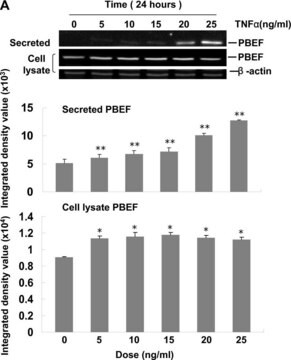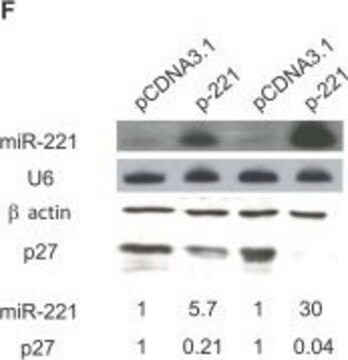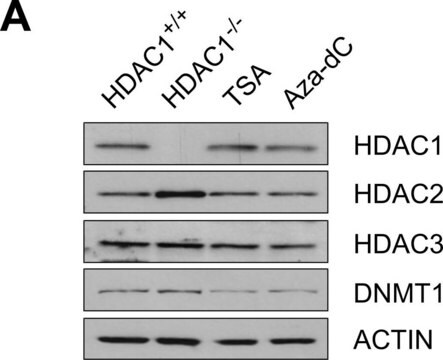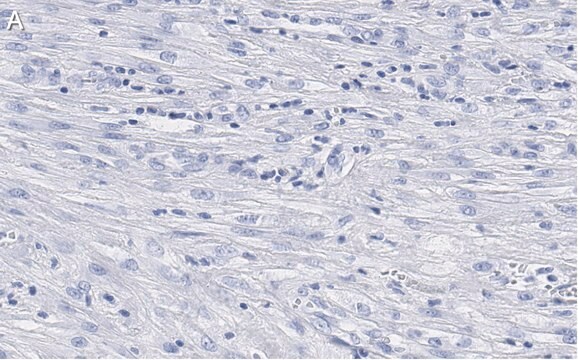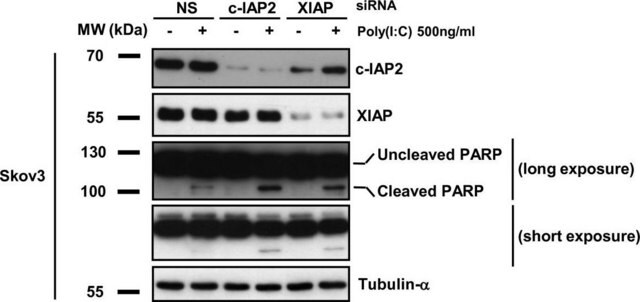A8481
Anti-γ-actina, anticuerpo monoclonal antibody produced in mouse
clone 2-2.1.14.17, purified from hybridoma cell culture
Sinónimos:
Anti-ACTG1
About This Item
Productos recomendados
biological source
mouse
conjugate
unconjugated
antibody form
purified from hybridoma cell culture
antibody product type
primary antibodies
clone
2-2.1.14.17, monoclonal
form
buffered aqueous solution
mol wt
antigen ~43 kDa
species reactivity
mouse, chicken, canine, bovine, human, hamster
packaging
antibody small pack of 25 μL
concentration
~2 mg/mL
technique(s)
immunohistochemistry: suitable
indirect ELISA: suitable
western blot: 0.25-0.5 μg/mL using total cell extract of 3T3 cells
isotype
IgG1
UniProt accession no.
shipped in
dry ice
storage temp.
−20°C
target post-translational modification
unmodified
Gene Information
bovine ... ACTG1(404122)
chicken ... ACTG1(415296)
human ... ACTG1(71)
mouse ... Actg1(11465)
General description
Specificity
Application
- immunofluorescence
- enzyme linked immunosorbent assay (ELISA)
- western blotting
- immunohistochemistry
Biochem/physiol Actions
Physical form
Other Notes
Disclaimer
¿No encuentra el producto adecuado?
Pruebe nuestro Herramienta de selección de productos.
Optional
Storage Class
10 - Combustible liquids
wgk_germany
nwg
flash_point_f
Not applicable
flash_point_c
Not applicable
ppe
Eyeshields, Gloves, multi-purpose combination respirator cartridge (US)
Certificados de análisis (COA)
Busque Certificados de análisis (COA) introduciendo el número de lote del producto. Los números de lote se encuentran en la etiqueta del producto después de las palabras «Lot» o «Batch»
¿Ya tiene este producto?
Encuentre la documentación para los productos que ha comprado recientemente en la Biblioteca de documentos.
Nuestro equipo de científicos tiene experiencia en todas las áreas de investigación: Ciencias de la vida, Ciencia de los materiales, Síntesis química, Cromatografía, Analítica y muchas otras.
Póngase en contacto con el Servicio técnico

